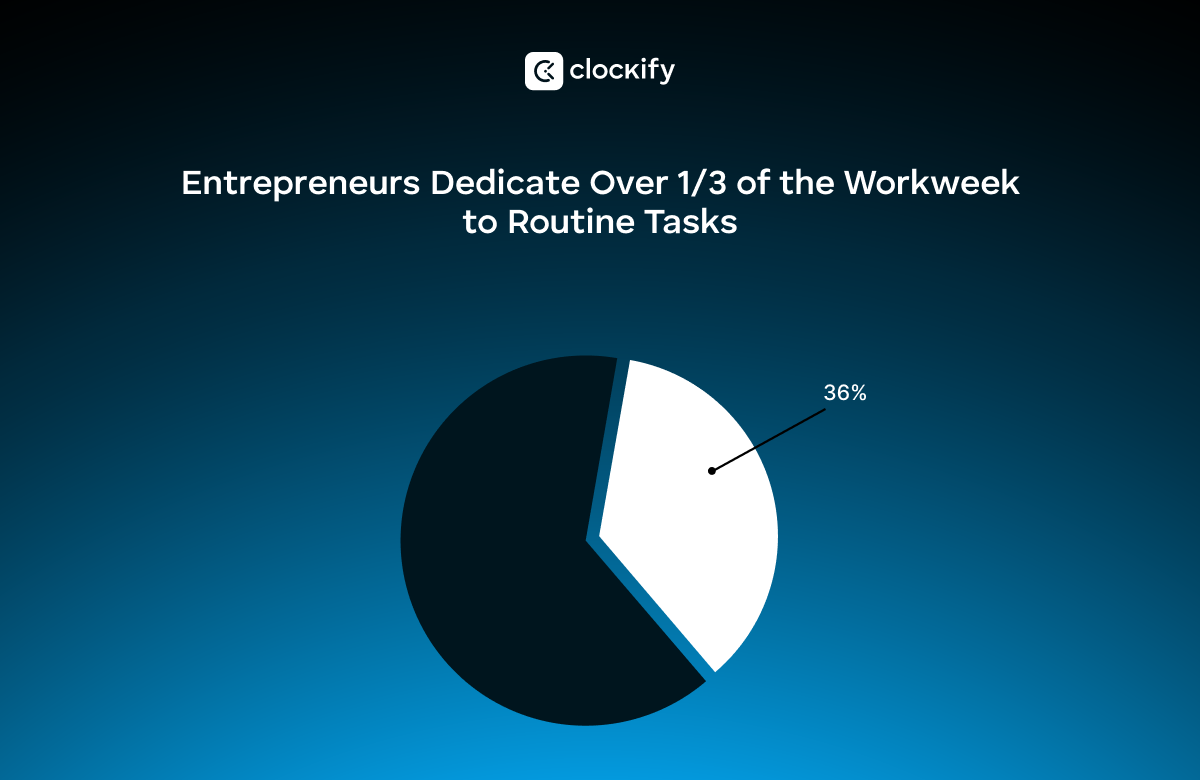How Simple Living Can Help with Time Management and Increase Productivity

Discovering a New Way to Live and Work
In today’s fast-paced world, the complexities of modern life can overwhelm us. With endless commitments and distractions, many individuals find themselves struggling to effectively manage their time and enhance their productivity. However, a shift towards simple living offers a remarkable solution.
By embracing a simpler lifestyle, you can:
- Minimize distractions: Fewer possessions and obligations lead to a clearer mind. A notable example is the “30-day minimalism game,” where participants declutter one item on the first day, two on the second, and so forth, effectively reducing excess clutter over the month.
- Prioritize effectively: Focus on what truly matters instead of getting lost in the trivial. For instance, adopting the Eisenhower Matrix—a tool that helps prioritize tasks based on their urgency and importance—allows individuals to concentrate on meaningful work rather than constant busyness.
- Enhance decision-making: With reduced choices, the decisions you face are more straightforward. This concept echoes the research by Barry Schwartz in his book “The Paradox of Choice,” which illustrates how too many options can lead to stress and indecision.
The principles of simple living encourage mindfulness and intentionality in our daily routines. By streamlining your environment and your schedule, you create more space for productivity and creativity. Numerous studies have shown that a clutter-free space can directly correlate with enhanced focus. For example, companies like Google have adopted open and minimalistic office designs, which foster collaboration and innovation among employees.
Moreover, simple living cultivates a sense of well-being, reducing stress and anxiety associated with over-commitment. When you actively choose simplicity, you are not merely decluttering your space but also reclaiming precious time. A report from the American Psychological Association indicates that minimalism not only reduces physical clutter but also mental clutter, leading to better mental health outcomes.
As you delve into this article, prepare to uncover the many ways in which simplifying your life can lead to better time management and increased overall productivity. Consider starting small: perhaps begin by identifying one area in your life that feels overloaded, and strategize a plan for simplification. This small step could lead to profound changes in how your days unfold.

In conclusion, the movement toward simple living is not merely a trend but a profound lifestyle choice that addresses the root of many modern-day pressures. By understanding and implementing these principles, you may find a new rhythm in your life, one where peace, focus, and productivity flourish side by side.
DISCOVER MORE: Click here for tips on simplifying your wardrobe
Streamlining Your Life for Greater Focus
The foundation of effective time management lies in understanding how to prioritize tasks and eliminate distractions. By adopting a simple living approach, individuals can cultivate a lifestyle that effortlessly enhances focus and productivity. The key is to realize that less can indeed be more; an unburdened schedule and environment can lead to profound changes in how we manage our time and accomplish our goals.
One of the immediate benefits of simple living is its ability to minimize distractions in our daily lives. When we take the step of decluttering not just our physical spaces but also our schedules, we open up the possibility for deeper concentration. For instance, limiting digital distractions, such as non-essential notifications on devices, can lead to better engagement during work hours. A study from the University of California indicates that it takes an average of 23 minutes to regain focus after an interruption. This is why a minimalistic approach to both tasks and belongings is imperative in managing time effectively.
Additionally, the concept of time blocking can be a game-changer when paired with a simple living philosophy. By assigning specific chunks of time to particular tasks, individuals can create a structured routine that aligns with their priorities. This technique not only helps in maintaining focus but also prevents burnout, allowing a balanced lifestyle with built-in periods for rest and rejuvenation. To implement time blocking effectively, consider the following strategies:
- Identify Your Peak Productivity Times: Determine when you are most alert and focused, and schedule your most demanding tasks during these windows.
- Group Similar Tasks: Combining similar responsibilities can streamline your workflow and minimize the time lost in transitioning between tasks.
- Allocate Breaks: Incorporating regular breaks into your schedule can provide necessary mental breaks, ultimately fostering greater creativity and effectiveness.
The principles of simple living promote intentionality in our daily routines. By consciously choosing what to allow into our lives, you create an environment that supports productivity rather than stifles it. For many, this may mean saying ‘no’ to certain commitments that, while valuable, do not align with their core goals or values. This practice not only saves time but also nurtures a sense of control over one’s schedule, reducing overwhelm.
Furthermore, simple living fosters a mindset that appreciates quality over quantity, encouraging individuals to invest their time in meaningful activities rather than getting bogged down by busywork. A report from the National Institute of Mental Health highlights that reducing mental clutter through careful curation of tasks leads to improved well-being—ultimately paving the way for increased productivity.
As you ponder the implications of simple living on time management, consider this: each step toward a simpler life is a step toward unlocking your fullest potential. By focusing on your priorities and eliminating distractions, you continue on the path to discovering how simplicity can revolutionize not only your productivity but also your overall quality of life.
Understanding Simple Living and its Impact on Productivity
In a world that constantly pushes for more—more work, more possessions, more activities—simple living advocates for a return to basics. This lifestyle encourages individuals to declutter not only their physical spaces but also their mental landscapes. By simplifying their lives, people find they can better manage their time and enhance their productivity.
One key aspect of simple living is the focus on prioritizing essential tasks. When you strip away the non-essential, you create room to breathe and think clearly. This mental clarity allows for more effective decision-making and can lead to improved outcome efficiency. Without the clutter of unnecessary commitments, individuals can allocate their resources—time, energy, and attention—more effectively.
Furthermore, simple living often leads to setting realistic goals. Without the distraction of excessive obligations, you can concentrate on key areas for development, whether in your personal life or career. By clearly defining what matters most, you can align your daily tasks with these greater goals, creating a sense of fulfillment and achievement.
As we delve deeper into how adopting a simple living mindset can shift your time management strategies, we can see there are numerous benefits to consider. These range from nurturing creativity to fostering a greater sense of well-being, all vital components in enhancing productivity.
| Category 1 | Category 2 |
|---|---|
| Time Management | Enhanced prioritization and focus on essentials. |
| Increased Productivity | Clearer goals lead to one’s best performance. |
As you consider these insights into the connection between simple living and time management, remember that it’s about making conscious choices that align with your values. This intentional approach can transform your daily routine and ultimately boost your productivity.
DISCOVER MORE: Click here to learn about the impact of minimalism on your living space</
Creating Space for Flexibility and Growth
In the realm of time management, flexibility is a critical ingredient that often gets overlooked. The practice of simple living encourages individuals to adopt a flexible mindset toward their schedules and commitments, allowing for spontaneous opportunities to arise without derailing productivity. By embracing simplicity, you can develop a more agile approach to your time management, prioritizing tasks while remaining open to adjustments as required.
Consider the benefits of mindful scheduling. Instead of rigidly planning every aspect of your day, a simple living philosophy invites you to build a framework where you can make room for unexpected moments. For example, rather than scheduling appointments back-to-back, leaving space between commitments can enable you to stretch, breathe, or even explore new ideas. Research by the American Psychological Association shows that a balanced approach to scheduling can lead to increased job satisfaction, even more than financial incentives. Thus, allowing yourself the room to adapt can pivot you from a state of urgency to one of awareness and creativity.
Moreover, the art of saying no becomes a powerful tool intertwined with simple living. In a society that often equates busyness with productivity, it is easy to overcommit. However, by learning to identify which opportunities genuinely align with your goals, you can reclaim critical time and energy. A report from the Project Management Institute indicates that 85% of project success comes from effective scope management and prioritization of tasks. By understanding your core values, you can make decisions that not only free up your schedule but also invigorate your sense of purpose.
Simple living also promotes a focus on quality of time rather than quantity. The idea is not merely to fill your day with tasks but to accomplish what is significant. Harvard Business Review emphasizes that professionals who prioritize meaningful tasks tend to achieve more significant outcomes with less effort. A valuable exercise in this context is to conduct a weekly review where you evaluate what tasks were accomplished and how they aligned with your broader life goals. This not only helps in refining future planning but ensures that every effort caters to your aspirations.
Another rationale for embracing simple living is the synergy it fosters between tasks and personal values. Many find that when their daily activities resonate with their core beliefs, productivity naturally intensifies. To illustrate, consider someone who is passionate about environmental sustainability. That individual might dedicate weekends to volunteering for ecological initiatives. This commitment is not just another obligation; it becomes a fulfilling investment of time that enhances personal well-being while also contributing positively to the community. According to a study by the University of Pennsylvania, individuals who engage in meaningful volunteer work report higher life satisfaction, further promoting productivity in other areas of their lives.
As we dissect how simple living dovetails neatly with effective time management strategies, it becomes evident that imbuing your life with simplicity cultivates an environment that not only supports but nurtures productivity. By allowing flexibility, practicing mindful scheduling, and focusing on quality experiences, you can harness the true potential of your time, ultimately paving the way for professional and personal growth. In the hustle of modern living, finding clarity amidst simplicity could be the key to not just getting things done but thriving in the process.
DISCOVER MORE: Click here to learn how minimalism can streamline your life
Conclusion: Embracing Simplicity for Success
In a world where busyness often masquerades as productivity, the concept of simple living emerges as a breath of fresh air, offering a transformative approach to time management and increased productivity. By stripping away the unnecessary complexities that cloud our schedules, we can create a clearer pathway to what truly matters. This philosophy encourages us to act with intention—prioritizing tasks that align with our core values and ultimately fostering a greater sense of purpose in our daily lives.
The practice of simple living promotes not only flexibility but also mental clarity, allowing for spontaneous moments of creativity and better decision-making. By cultivating routines grounded in mindfulness, individuals can maximize meaningful engagements while reducing the burden of overcommitment. Research illustrates that those who focus on significant tasks often achieve monumental results, notably more than their constantly busy counterparts. This redefined understanding of productivity emphasizes quality over quantity and encourages a harmonious balance between work and personal fulfillment.
As you embark on your journey toward simple living, consider implementing strategies such as mindful scheduling, intentional prioritization, and regular self-reflection. Each of these elements enhances not just your productivity but also the rich experiences that come with a fulfilling life. So take a step back, strip away the extraneous noise, and allow simplicity to become the guiding force in your time management. In doing so, you aren’t merely managing time; you’re reclaiming it to live out your full potential and, ultimately, thriving in both your personal and professional endeavors.

